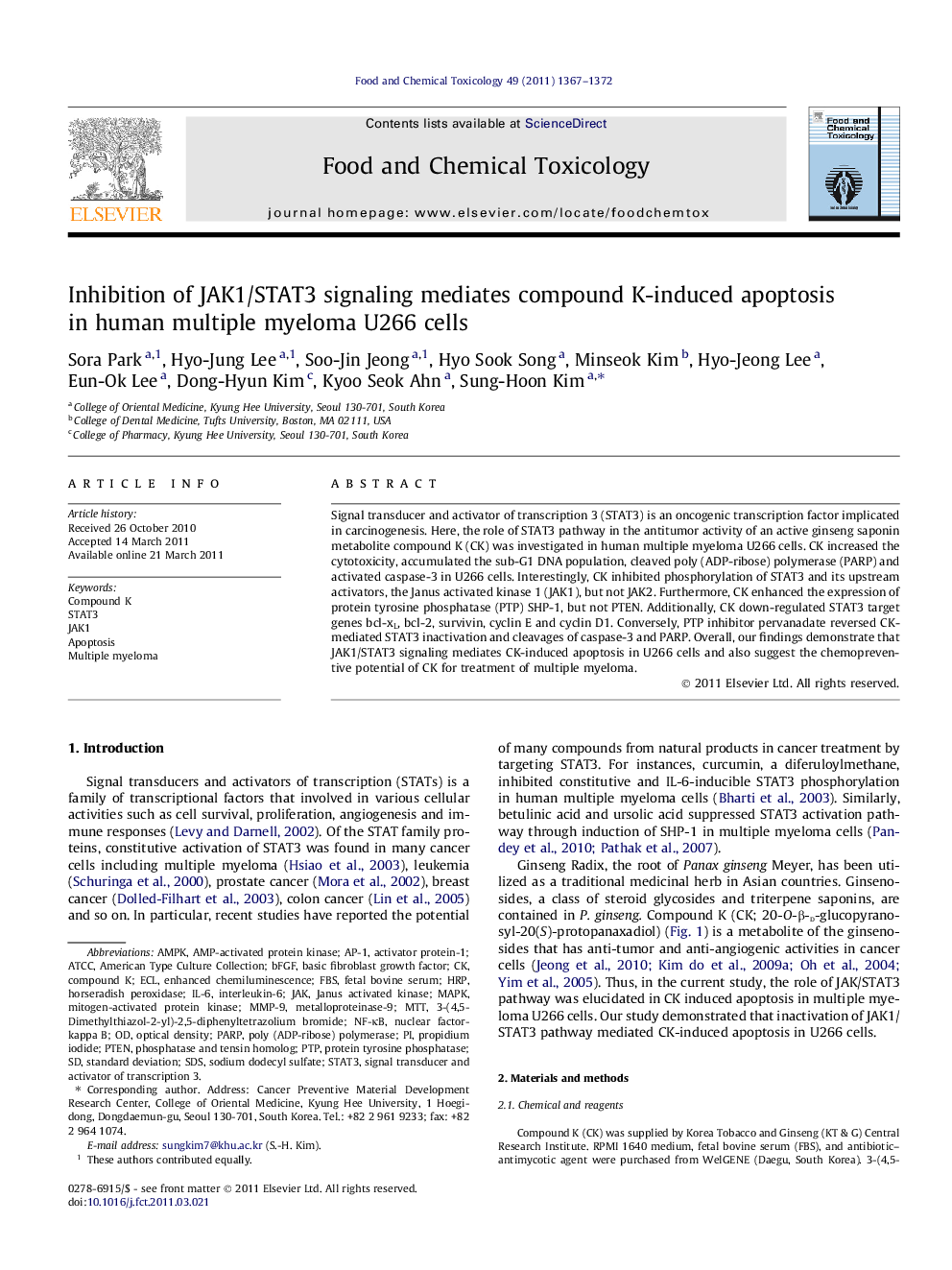| Article ID | Journal | Published Year | Pages | File Type |
|---|---|---|---|---|
| 5853446 | Food and Chemical Toxicology | 2011 | 6 Pages |
Signal transducer and activator of transcription 3 (STAT3) is an oncogenic transcription factor implicated in carcinogenesis. Here, the role of STAT3 pathway in the antitumor activity of an active ginseng saponin metabolite compound K (CK) was investigated in human multiple myeloma U266 cells. CK increased the cytotoxicity, accumulated the sub-G1 DNA population, cleaved poly (ADP-ribose) polymerase (PARP) and activated caspase-3 in U266 cells. Interestingly, CK inhibited phosphorylation of STAT3 and its upstream activators, the Janus activated kinase 1 (JAK1), but not JAK2. Furthermore, CK enhanced the expression of protein tyrosine phosphatase (PTP) SHP-1, but not PTEN. Additionally, CK down-regulated STAT3 target genes bcl-xL, bcl-2, survivin, cyclin E and cyclin D1. Conversely, PTP inhibitor pervanadate reversed CK-mediated STAT3 inactivation and cleavages of caspase-3 and PARP. Overall, our findings demonstrate that JAK1/STAT3 signaling mediates CK-induced apoptosis in U266 cells and also suggest the chemopreventive potential of CK for treatment of multiple myeloma.
Graphical abstractDownload full-size imageHighlights⺠Compound K inhibits the activation of JAK1/STAT3 in human multiple myeloma U266 cells. ⺠Compound K enhances the expression of SHP-1 in human multiple myeloma U266 cells. ⺠Compound K down-regulates STAT3 target gene products in human multiple myeloma U266 cells. ⺠Compound K induces apoptotic cell death through STAT3 signaling in human multiple myeloma U266 cells.
